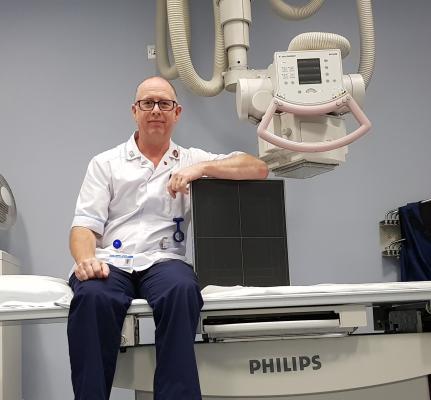Identifying transferable skills
The NHS is always looking for the very best people. We need people with a wide range of skills and experiences that working in other sectors and industries can bring.
You'll have some skills that we are looking for in the NHS. It could be as simple as identifying what they are and then taking that first step.
Caring for people
- you may already be in a job where you are caring for people, whether it be the elderly or those with a disability or additional needs. Perhaps you have raised a family or you are a carer, with experience of looking after a family member or relative
- 70% of roles in the NHS involve staff who are in front-line roles, having direct contact with people and treating and caring for them. These include nurses, midwives, doctors, dentists, allied health professionals and some healthcare science roles
- management staff, those who work in health informatics and the wider healthcare team, work with patients less directly but make a valuable contribution to the delivery of healthcare
People skills
- you may have previous experience of working with people, in a caring, advisory or management role, or as part of a team
- you may be a people person, who would enjoy helping patients and families to feel comfortable and supported while they spend time in healthcare settings
- you might prefer to work on an hospital information desk, directing people to the right department, or in a hospital based newsagent, chemist or coffee shop
Most healthcare jobs involve working with people and team work is very important. You could be:
- working with patients as a member of a healthcare team
- working in the community, either in a multidisciplinary team with social workers, in a small team in a GP surgery or clinic, or working one to one with patients in their own homes.
- in a management or support role, such as finance, HR, catering, estates and facilities
Paul Wicklin
Diagnostic radiographer
Read Paul's storyMaking the move into diagnostic radiography and imaging is easily the best one I’ve made since signing up for the RAF.

Knowledge of science and technology
- providing direct care for patients requires a general understanding of some areas of science
- a more detailed knowledge of biology, chemistry or physics is required for many roles in the NHS, where healthcare science staff, doctors, dentists and allied health professionals use their knowledge of specific areas of science on a daily basis
- there are other roles, such as medical research where an advanced knowledge and passion for specialist areas of science is required
- today’s healthcare services use the latest healthcare technology to ensure patients are treated more effectively. Implementation of new technology is the main focus of some areas of healthcare science and health informatics, and in some advanced dental, nursing and therapy roles
Organising and managing
- you may already work in an office or in a role that uses administrative skills. You may be supervising, leading a team or have management experience
- the NHS has 1.3 million staff and is the largest employer in Europe, made up of 500 different organisations in England alone. People, building, finances, information services and stores and supplies need to be organised or managed. For some of these areas you don’t need to be a healthcare professional and you may be able to use your existing qualifications or you can make the transition through in-service training. These areas include management and health informatics
- management skills from areas such as finance, communications, IT or project management are all going to be useful in healthcare management
Information technology
- you may already work with computers, enjoy analysing data or find satisfaction in keeping accurate records. These are skills widely valued in all areas of healthcare
- if you are an IT specialist you may be interested in health informatics where you could be involved in IT technical support, health records, information management (including knowledge and library services), developing and maintaining websites or statistical roles
Practical skills and trades
- if you are a trained trade professional, such as an electrician, plumber, painter and decorator or a carpenter, your skills are in demand. You could use your skills to ensure vital equipment is kept in use and hospitals and community health centres are safe and attractive environments for staff and patients
- good housekeeping skills are valued to keep hospitals clean and reduce the chances of infection
- catering skills are needed to provide a wide range of food that caters to different patient diets
- if you have gardening skills these can be used to maintain calm and pleasant outdoor spaces to help patients recuperate
What about qualifications?
Whatever level of qualifications you have, there will be a role in healthcare for you.
- for some roles, such as clinical support worker roles, you may not need many qualifications and you can learn on the job
- if you want to work in nursing, healthcare science or an allied health career you could consider study for a degree course. Financial support may also be available. If you don’t have the right entry qualifications or haven’t studied for several years you could consider an Access to Higher Education course
What if I don’t have experience in the area I am interested in?
If you don’t have sufficient relevant work experience in the area you are interested in getting into, you may need to consider voluntary work.
- you can volunteer directly with the NHS and opportunities can be found on NHS trust websites
- you can also volunteer for a wide range of charities and organisations in social care or healthcare
- it is also worth bearing in mind that relevant work experience may be an entry requirement for some healthcare courses.




